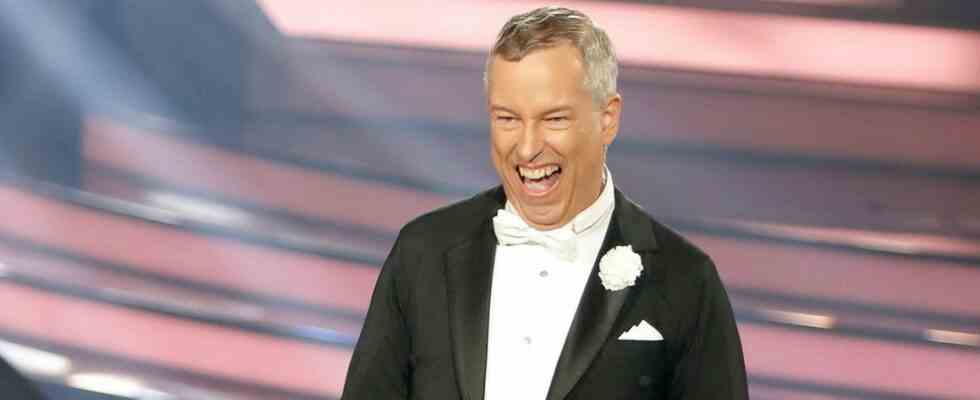If Thomas Hermanns on Thursday for the last time Nonsense Comedy Club moderated for Pro Sieben, nothing comes to an end at first. Hermanns moves behind the camera because it clears the way for the next generation. Clearing paths is the core of his work anyway. For German pop culture, he was one of the most important transatlantic artists, importing everything from the dance battles of voguing to the sing-along folk sport of karaoke to stand-up comedy, which has become a mass phenomenon
The broadcast “Bye bye Thomas” he stages as a big bracket. Michael Mittermeier, Ingo Appelt and Rüdiger Hoffmann will be on stage with him, who were also present in the first show in 1997. Thomas Hermanns had the American comedy method, without props and costumes directly to the audience to speak, brought him from New York. At the end of the 1980s, right after completing his master’s degree in theater studies, he spent nine months there to find what he was missing in Germany: humor, glamor, freedom. Our paths crossed back then in the downtown clubs “He already had star qualities. Studio 54 danceteria bouncer Haoui Montaug and Mudd Club DJ Anita Sarko regularly threw parties where they taught New Yorkers how to sing along to Japanese karaoke. Thomas’ trademark was to sing along to Madonna songs Because Montaug was one of the early discoverers of the post-disco queen, Thomas always got a special place in his evenings i.e.
Karaoke was then back. Germany a first key to domestic pop culture. At his “Tommy Gardens Singalong” parties, Thomas explored the sensibilities of the nation from 1989 onwards. And because he not only brought new phenomena with him from New York, but also a sense of “camp”, one of the most ambitious and successful cultural projects soon matured. To teach the Germans how to be funny.
Humour, campness, glamour: he brought us a lot
Now “camp” could not have been imported 1:1. Susan Sontag described this instinct for style and taste boundaries as a cultural technique of a highly educated elite of homosexual cosmopolitans who questioned every dogma and dictate. Germany might have been educated, but not particularly cosmopolitan. In 2017 he showed how skilfully Hermanns wove this into German pop culture with his musical Boy Bands Forever. Since he rehabilitated the recruit bands like Take That, Back Street Boys or *NSYNC. According to the rules of “camp”, it would have been easy to transfigure this era with the homoerotic gaze into cool kitsch. Above all, Hermanns recognized the quality of the songs and the passion of the fans in the Bubblegum hits, who didn’t want a place in hipsterism at all. Similarly, he transposed the sensibilities of American stand-up comedy for a German audience. Above all, the realization that nothing is as fun as everyday life, which pioneers like George Carlin, Joan Rivers and Jerry Seinfeld perfected, also worked in Germany.
When Thomas Hermanns, who will be 60 next March, is on stage this Thursday, then in addition to his early comrades-in-arms in his wake, the celebration also applies to all the comedians who started out in his club, for example Cindy from Marzahn, Chris Tall or Benny Kaltenbach, all the stars who were able to prove themselves there early on, such as Carolin Kebekus, Mario Barth and Gayle Tufts. There are five permanent theaters today. As a moderator and director, Hermanns has long been an institution. But what really counts is his pop culture heroic deed, that in addition to the humor, the “camp” and the glamor he brought something from New York that the Germans had long been missing. That was a casual way of dealing with yourself and the world that goes much further than the next punchline.
30 years of nonsense comedy club – bye, bye Thomas, Per Sieben, Thursday, 8:15 p.m.

